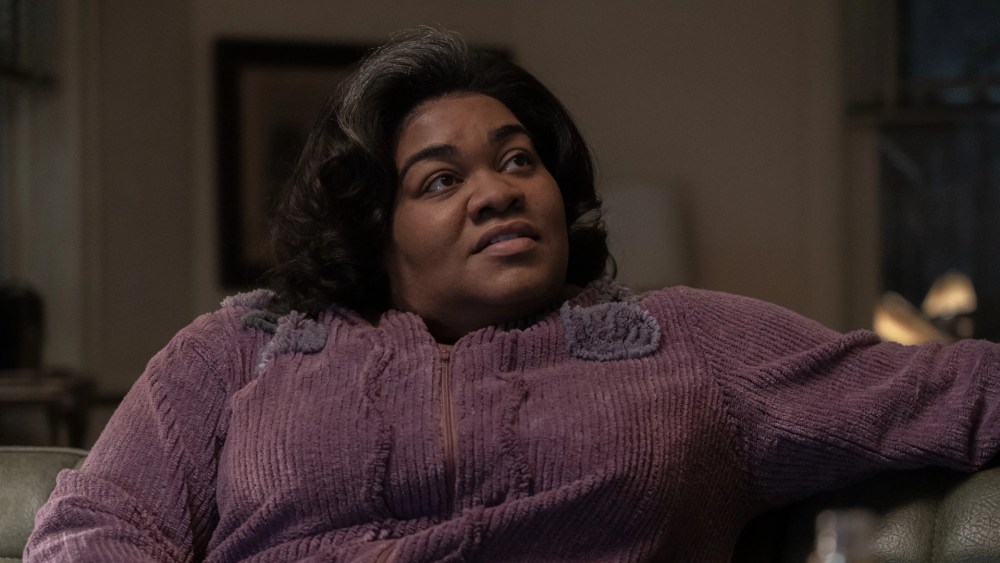Da’Vine Joy Randolph had grown weary of scripts that offered her shallow or one-dimensional characters. “I’ve felt like I had to fight for fully realized characters with complexities or even start writing or producing myself,” she says.
Then she was sent David Hemingson’s script for “The Holdovers,” for the role of Mary Lamb, who works in the cafeteria of a prep school for the wealthy, soldiering on even as she mourns the death of her son
in Vietnam.
“I was so overjoyed to read this character, someone who was really struggling, but also trying to persevere in spite of her situation,” says Randolph, who was nominated for a Tony Award in 2012 for her performance in “Ghost: The Musical.” She has since appeared in everything from “Dolemite Is My Name,” “High Fidelity” and “Only Murders in the Building” to “The United States vs. Billie Holiday” and this year’s “Rustin,” where she sings as Mahalia Jackson at the March on Washington.
Randolph was so moved that when she first talked about the part with director Alexander Payne, she compared the script to Chekov. “He took misery, boredom, silence and normal behavior and made them real but in an interesting way,” Randolph says.
Payne, who had admired Randolph’s comedic performance in “Dolemite,” was struck in their initial conversation by her understanding of the film, but once they started filming what impressed him most was how Randolph played those silences, especially in the dramatic moments. “There’s a moment where she’s unpacking her son’s baby stuff at her sister’s house and she brought a subtlety and profundity to it,” Payne says. “And when she’s in a drunk reverie at a party, the camera dollies in and she expresses a myriad of emotions I can’t fully name but which moved me.”
Randolph liked that she was playing a mother mourning her son’s death in a Christmas movie and that she was named Mary, and her son had been a sacrificial “Lamb” in Vietnam. “The more details, the better and a name holds a lot of meaning, in what people project onto you, what you embody and what you feel expectations are,” she says, pointing to her unique first name and her middle name as well. “You carry that with you everywhere you go.”
Her character must also swing from drama to comedy and back again — Payne says he tends to prefer actors with comedic chops for those shifts and Randolph agrees. Comedic actors “don’t get too precious with things and can throw things away because the biggest trap for this film would have been if it became melodramatic and really milked that,” she says. “Adding that flare of comedy after a really intense moment is quite a punch combo.”
Randolph found an easy chemistry with the film’s star, Paul Giamatti, who plays a cynical curmudgeon who uses verbal zingers like a shield. Both studied at the Yale School of Drama, which she
thinks helped.
“I didn’t think that was going to mean anything but from the first take or two we were creating from a similar place and I knew our foundation was developed by our shared institution and the curriculum,” she says.
Randolph, who doesn’t like watching her performances, just “surrenders” to her characters.
“You turn your vessel over to her,” she says, adding that when she watched herself in “The Holdovers” it didn’t even feel like her. “I thought, ‘Who is that,’” she says with a laugh. “It’s like there’s the text, but when it’s on its feet, it just takes on a life on its own.”

